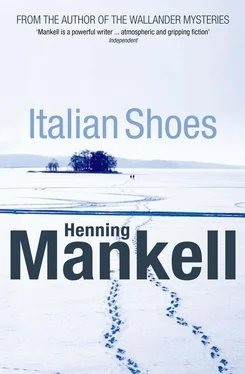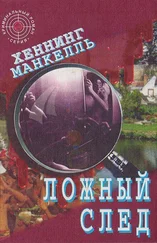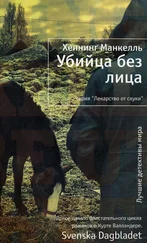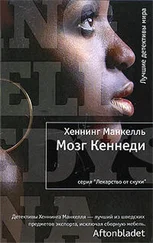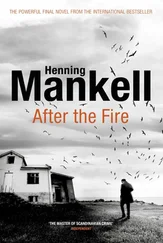‘But surely you can’t be a boxer and play the violin as well? How do his fingers cope?’
‘You’ll have to ask Amandus that. Ask the others.’
She didn’t tell me who the others were. She continued along the well-trodden path leading to a barn at the other side of the boxing ring. As I observed her from behind, it struck me that her body was very much like Harriet’s. But what had my daughter looked like when she was a little girl? Or when she was a teenager? I trudged along through the snow and tried to think myself back in time. Louise was born in 1967. She was a teenager when I was at the height of my career as a surgeon. I suddenly felt a surge of anger. Why had Harriet not said anything?
Louise pointed to some tracks in the snow and said they had been made by a wolverine. She opened the barn door. There was a paraffin lamp on the floor: she lit it and hung it from a hook in the ceiling. It was like entering an old-fashioned gym used by boxers or wrestlers. Dotted around on the floor were dumb-bells and weightlifting bars, a punchbag hung down from the ceiling, and on a bench was a neatly coiled skipping rope and several pairs of red and black boxing gloves.
‘If it had been spring, I’d have suggested we should have a couple of rounds,’ Louise said. ‘I can’t think of a better way of starting to get to know a father I’ve never met before. In more than one sense.’
‘I have never, ever worn a pair of boxing gloves.’
‘But you must have been in a fight or two?’
‘When I was thirteen or fourteen, I suppose. But they were more like wrestling matches in the school playground.’
Louise stood by the punchbag and set it swaying gently back and forth with her shoulder. The paraffin lamp was shining just above her head. I still thought it was Harriet I was looking at.
‘I’m nervous,’ she said. ‘Have you any more children?’
I shook my head.
‘None at all?’
‘No, none at all. What about you?’
‘None.’
The punchbag was still swaying back and forth.
‘I’m just as confused as you are,’ she said. ‘There have been times when I’ve remembered that I must have had a father, despite everything, and the thought has made me furious. I think that’s why I took up boxing. So that I could knock him out on the day that he rose from the dead, and count him out into eternity, as my revenge for him abandoning me.’
The light from the lamp danced around the rough walls. I told her about how Harriet had suddenly turned up on the ice, about the forest pool, and the detour she had suddenly asked me to make.
‘Didn’t she say anything about me?’
‘No, all she spoke about was the forest pool. Then she said that she wanted me to meet her daughter.’
‘I ought to throw her out really. She’s made fools of us both. But you don’t throw out somebody who’s ill.’
She raised her hand and stopped the punchbag swinging.
‘Is it true that she’s going to die soon? You’re a doctor — you must know if she’s telling the truth.’
‘She’s very ill indeed. But I don’t know when she’s going to die. Nobody could put a date on that.’
‘I don’t want her to die in my caravan,’ said Louise, blowing out the paraffin lamp.
We stood there in the pitch dark. Our fingers happened to meet. She took hold of my hand. She was strong.
‘I’m so glad you’ve turned up,’ she said. ‘I suppose that, deep down, I’ve always thought you would do one day.’
‘It had never occurred to me that I might have a child.’
‘You don’t have a child. You have a grown-up woman approaching middle age.’
When we emerged from the barn, I could see her in front of me as a silhouette. The stars seemed to be almost within reach, glittering.
‘It’s never completely dark up here in the far north,’ said Louise. ‘When you live in a big town, you don’t see the stars any more. That’s why I live here. When I lived in Stockholm, I used to miss the silence, but most of all the stars. I don’t understand why it doesn’t seem to have occurred to anybody that in this country we have fantastic natural resources just waiting to be exploited. Why is nobody selling silence, in the same way that they sell the forests and the iron ore?’
I knew what she meant. Silence, starry skies, perhaps also solitariness — such things simply don’t exist any more for most people. I was beginning to think that she was very like me, despite everything.
‘I’m going to start a company,’ she said. ‘My boxer friends are going to be partners. We’re going to start selling these glittering, silent nights. We’ll all be very rich one of these days, I’m sure of it.’
‘Who are these friends of yours?’
‘There’s a deserted village a few miles north of here. Its last inhabitant moved out one day in the 1970s. All the houses were empty, nobody even wanted them as holiday cottages. But Mr Mateotti, an old Italian shoemaker, came here while on his journey looking for silence. Now he’s living in one of those houses, and he makes two pairs of shoes per year. At the beginning of May every year, a helicopter lands in the field behind his house. A man from Paris comes to pick up the shoes, pays him for his work, and passes on the orders for the shoes Giaconelli is expected to make in the coming year. There’s an old rock singer living in Sparrman’s village store that closed down years ago. He used to call himself the Red Bear, and he had two gold discs, making him a candidate for the Swedish King of Rock in competition with Ricky Rock and Gary Granite. His hair was bright red, and he made a scrumptious recording of “Peggy Sue”. But when we celebrate midsummer and sit down to eat at our table in the boxing ring, we all want him to sing “The Great Pretender”.’
I remembered that hit very well, in the original version recorded by the Platters. Harriet and I had even danced to it. I think I could remember all the words, if I put my mind to it.
But the Red Bear and his gold discs — that meant nothing to me at all.
‘It sounds as if there are a lot of remarkable people living around here.’
‘There are remarkable people living everywhere, but nobody notices them because they’re old. We live in an age when old people are supposed to be as transparent as a sheet of glass. It’s best if we don’t even notice that they exist. You are becoming more and more transparent as well. My mother has been for ages.’
We stood there in silence. I could just about make out the lights from the caravan in the distance.
‘Sometimes I feel an urge to lie down out here in the snow in my sleeping bag,’ said Louise. ‘When it’s full moon, the blue light gives me the feeling of being in a desert. It’s cold at night in the desert as well.’
‘I’ve never been in a desert. Unless the shifting sands at Skagen count as a desert?’
‘One of these days I really will go to bed out here. I’ll take the risk of never waking up again. We don’t only have rock musicians around here: we have jazz musicians as well. When I lie down out here and try to go to sleep, I’ll have them standing round me, playing a slow lament.’
We set off again through the snow. An owl hooted somewhere in the distance. Stars fell out of the sky, but then seemed to be ignited again. I tried to digest what she had told me.
It turned out to be a very strange evening.
Louise prepared a meal in the caravan while Harriet and I sat squashed together on the narrow sofa bed. When I said Harriet and I would have to find somewhere to spend the night, Louise insisted that all three of us could sleep in her bed. I was going to protest, but decided not to. Louise produced a flagon of wine that seemed to be very strong and tasted of gooseberries. She then served up a stew which she claimed contained elk meat, and to go with it a variety of vegetables grown by one of her friends in a greenhouse, which he evidently used as a home as well. His name was Olof, he slept among his cucumbers, and was one of the men she boxed with in the spring.
Читать дальше
